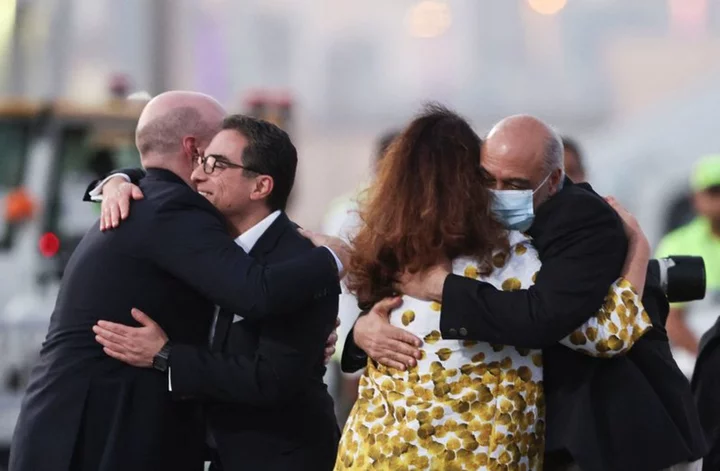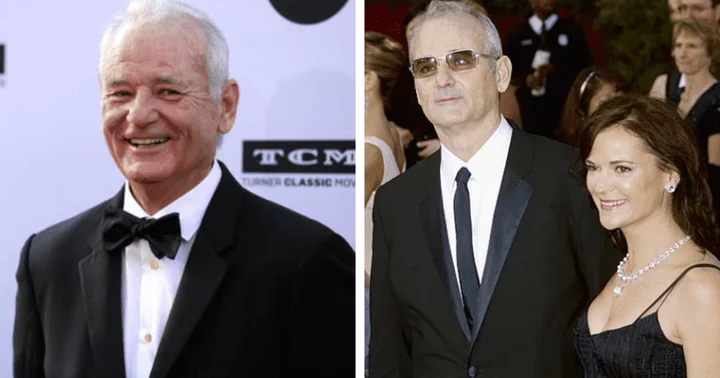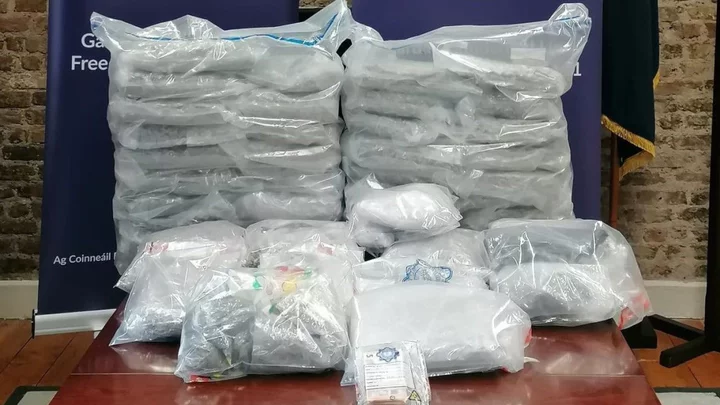By Andrew Mills
DOHA Five U.S. citizens left Iran and landed in Doha on Monday in a prisoner swap for five Iranians held in the United States and the transfer of $6 billion in Iranian funds in a rare moment of cooperation between the long-time antagonists.
"Today, five innocent Americans who were imprisoned in Iran are finally coming home," U.S. President Joe Biden said in a statement, shortly before the U.S. detainees descended the stairs of a Qatari jet to be embraced by U.S. diplomats.
Separately, Iran's Press TV said the five Iranians detained by the United States and charged with committing crimes had been freed, an apparent reference to their being granted clemency. Two arrived in Doha, U.S. and Iranian officials said.
It was unclear whether the exchange might bring progress on the many issues that divide the two nations, including Iran's nuclear program, its support for regional Shi'ite militias, the presence of U.S. troops in the Gulf and U.S. sanctions on Iran.
In a sign Biden, a Democrat, wishes to keep a tough front toward Iran and perhaps blunt Republican criticism, he announced U.S. sanctions on Iran's former Iranian president Mahmoud Ahmadinejad and its intelligence ministry "for their involvement in wrongful detentions."
"We will continue to impose costs on Iran for their provocative actions in the region," he said in the statement, in which he thanked the governments of Qatar, Oman, Switzerland and South Korea for their assistance in securing the releases.
A plane sent by mediator Qatar flew the five U.S. citizens and two of their relatives out of Tehran after both sides got confirmation the $6 billion was transferred from South Korea to Qatari accounts, a source briefed on the matter told Reuters.
Republicans have criticized Biden for paying what they say amounts to ransom for the U.S. detainees.
Biden aides argue the money belongs to Iran and is being transferred from South Korea to Qatari accounts, where it can only be spent on food, medicine and other humanitarian items with U.S. oversight.
Earlier, two of the five Iranians landed in Qatar, a U.S. official said. Three have opted not to return to Iran.
The five Iranian Americans - one of whom had been held for about eight years on charges the United States had rejected as baseless - were due to board a U.S. government aircraft in Doha and then fly home to the United States.
The deal, after months of talks in Qatar, removes a major irritant between the U.S., which brands Tehran a sponsor of terrorism, and Iran, which calls Washington the "Great Satan".
A senior U.S. administration official said the deal did not change Washington's adversarial relationship with Tehran, but the door was open for diplomacy on Iran's nuclear program.
"If we see an opportunity, we will explore it but right now, I've really nothing to talk about," the official told reporters, speaking on condition of anonymity.
The U.S. dual citizens released include Siamak Namazi, 51, and Emad Sharqi, 59, both businessmen, and Morad Tahbaz, 67, an environmentalist who also holds British nationality.
The identities of the fourth and fifth U.S. citizens were not disclosed at their request given their desire for privacy.
Iranian officials have named the five Iranians released by the U.S. as Mehrdad Moin-Ansari, Kambiz Attar-Kashani, Reza Sarhangpour-Kafrani, Amin Hassanzadeh and Kaveh Afrasiabi.
Iranian media identified the two men who landed at Doha as Moin-Ansari and Sarhangpour-Kafrani. Two Iranian officials previously said that Afrasiabi would remain in the United States but had not mentioned others.
(Reporting by Andrew Mills in Doha, Elwely Elwelly in Dubai and Hyonshee Shin in Seoul; Writing by Edmund Blair and Arshad Mohammed; Editing by Andrew Cawthorne, William Maclean)









